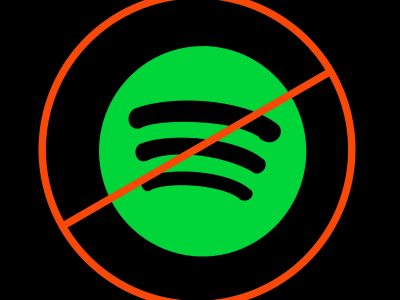When Spotify announced their $100 million deal to acquire the exclusive rights to the most popular podcast in the world, it’s hard to believe they knew the controversy they’d find themselves in only two years later.
It was always going to be hard for Joe Rogan, who has never shied away from inviting controversial guests on his show like Alex Jones or Ben Shapiro, to conform to being the setting of a major corporation. But, the COVID-19 pandemic proved only to exacerbate issues with Rogan.
Rogan employed his “inviting all perspectives” philosophy to guest booking throughout the pandemic. This allowed for content, or “conversations” as Rogan terms them, that strayed away from the consensus science of the pandemic.
Guests on his show discussed the lab-leak theory, the ineffectiveness of cloth masks and experimental COVID treatments like ivermectin, among other things.
These episodes were soon labeled “dangerous misinformation” by some.
While he had been criticized throughout the pandemic, the pressure on Spotify to sever its ties with Rogan intensified in recent weeks when artist Neil Young told Spotify they could only have either him or Rogan on the platform, not both.
Spotify, probably unwilling to cut bait on a $100 million deal, picked Rogan.
Since then, other artists like Joni Mitchell and Crosby, Stills, and Nash have all told the platform “it’s either Joe Rogan or us.”
Now, Spotify has to make the tough decision to drop someone who garners 200 million listeners a month for the platform or leave it vulnerable to the potential for a major boycott.
As it stands, this current Spotify controversy is likely to be the next battleground of our culture wars. But the actual resolution to the problem can come without everyone having to divide into pro and anti-Spotify factions.

But isn’t there an easier way to resolve this problem?
Rogan came into popularity as somewhat of an anti-journalist, someone who bucked the standards and norms of the “artform.” But, now, with the immense power and influence he has garnered, it’s time that he conformed to some of these norms while also embracing a journalistic ethical framework.
In a video released Monday, Rogan shouldered some blame for the situation and apologized for the place he had put his employer in.
He also accepted the idea of Spotify adding disclaimers or advisories that say the opinion of these guests is contrary to the scientific consensus on episodes with “controversial” guests, saying that he thought it was “very important.”
“If anything that I’ve done that I could do better,” Rogan said, “is having more experts with differing opinions right after I have the controversial ones.”
These two potential measures would help the situation Rogan and Spotify are in, but it doesn’t go as far as possible.
Rogan needs to fact-check his guests live on air, not just after the fact with advisories or differing opinions in subsequent episodes. If a guest says something false, he has to call them out in the moment and say, “no, that’s not true.” This live fact-checking is something traditional broadcast journalists already do, and it’s a standard that Rogan should embrace.
As the over-used phrase goes, “with great power comes great responsibility.” Rogan may have started in a very independent and informal atmosphere having conversations with interesting people, but now he has to accept the responsibility of the influence he possesses.
This would allow him to carry on his outlaw attitude while also living within the traditional corporate media system.
These measures may not go far enough, but we can all agree that starting a culture war over Joe Rogan and Spotify is not solving anyone’s problems.





















































































































